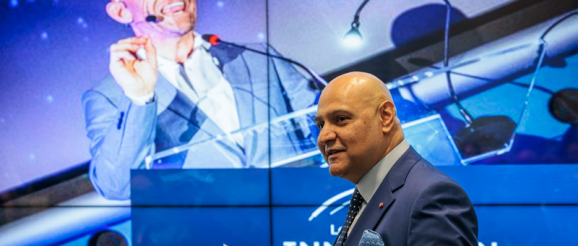SMEs on agenda as Leicestershire Innovation Festival launches with packed event – East Midlands Business Link

Leicestershire Innovation Festival launched with a packed event at Space Park in Leicester.
An extended schedule of events for 2022 commenced on Monday with a morning themed around innovation and sustainability.
It saw a series of public, private and university leaders from the East Midlands and beyond describing the region’s opportunities against the backdrop of Levelling Up and Net Zero.
Dr Nik Kotecha OBE, chair of the Leicester and Leicestershire Enterprise Partnership (LLEP) Innovation Board, opened the event by presenting innovation as being about continuous improvement and open to all sizes of businesses.
Leicester and Leicestershire’s £23bn GVA – the largest economy in the East Midlands – is built largely upon SMEs.
Dr Kotecha, recently named chair of CBI East Midlands, talked about ‘Beacons’ – economic clusters in core local sectors – and their role in upskilling people to make the products of the future.
He also described the Government’s interest in innovation as a means of improving productivity and global competitiveness.
Dr Kotecha concluded by setting out the Innovation Board’s priorities, which included defining innovation, signposting funding opportunities, removing barriers and collaboration between public, private and academic innovators to the benefit of all.
He drew the example of the Oxford-AstraZeneca vaccine as an example of what can be achieved when the three combine.
Julian Bowrey, regional manager at Innovate UK, described Leicester and Leicestershire as a “happy hunting ground” for his organisation in the issuing of awards to support innovation projects.
He made a case for increased communication, whether it be locally, nationally or internationally, to ensure conversations in a language that business understands are supporting collaboration and creativity.
Dennis Hayter, of Loughborough University spin-out Intelligent Energy, described how collaborations with the likes of Suzuki and London Taxi Co were developing and trialling world-leading projects in the use of hydrogen fuel cells for transport.
It was a theme continued by Robert Evans, CEO of Cenex, a consultancy for low carbon and fuel cell technologies which is also based on the Loughborough University Science and Enterprise Park (LUSEP) campus.
His not-for-profit organisation formed in 2005 and works between industry and customers in getting emerging fuel cell technology into general transport use.
Peter Ware, chair of the Midlands Engine’s Green Growth Board was next, pointing out that the Midlands’ £250bn economy was larger than that of Denmark.
He outlined its 10-point plan for growth, based on three themes of Place, Energy and Enablers. Net Zero transport was again part of the plan, alongside buildings, low carbon, smart energy and nature recovery.
The event concluded with a Q&A, led by Charlotte Horobin, the membership director for Make UK and Operating Board member of the Midlands Engine, who steered audience questions about cyber, skills and effective communications to a nine-strong panel.
The event speakers were joined on the panel by Will Wells, commercial director at the University of Leicester, Sue Tilley, the LLEP’s head of business and innovation, and Business Gateway Growth Hub manager, Rachel York.
Describing work being done at De Montfort University, including as GCHQ’s only accredited institute, Helen Donnellan talked about the importance of communication and making connections, adding: “Innovation comes in all shapes and sizes and is across the board – we have this festival to celebrate that.”
